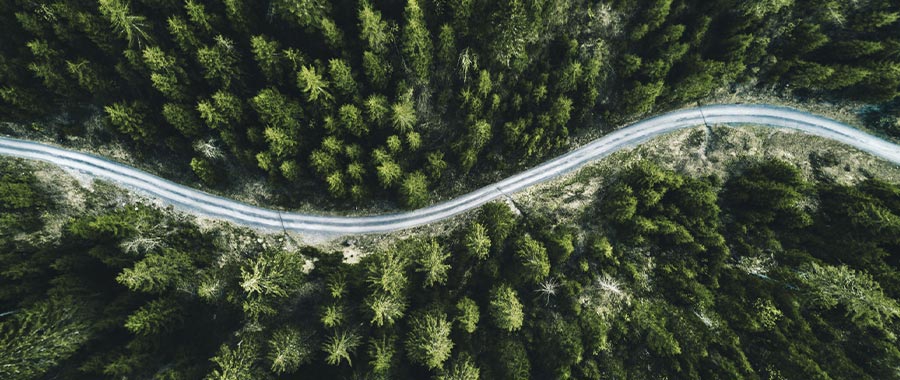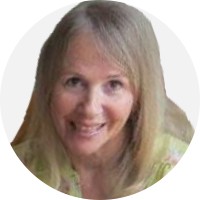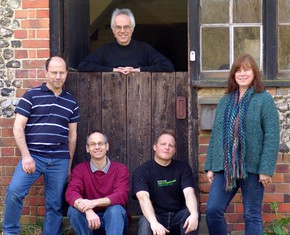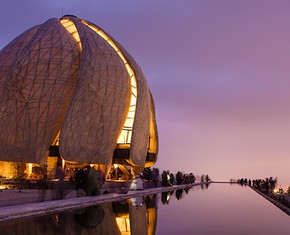The views expressed in our content reflect individual perspectives and do not represent the authoritative views of the Baha'i Faith.
I have always been interested in genealogy—so I recently had my DNA analyzed, to see where I really originated.
In the past, I always identified as British. My grandmother used to tell me intriguing stories of her British family’s past, back before necessity required them to leave the land that generations had called home, to travel halfway around the world in the harsh confines of a sailing ship to the little-known colony of New Zealand. Prior to this, the family had been relatively wealthy Cornish farmers and landowners living comfortably in a manor house, at least until her grandfather sired seven daughters.
Now he found himself with an unfortunate dilemma: to avoid being saddled with the ongoing maintenance of such a large dependent family, he had to scrape together seven considerable dowries from the sale of family-heritage land, in order to ensure that the daughters could make matches enabling them to maintain the lifestyle to which they had become accustomed.
Such were the economic pressures that helped shape the history of humanity.
A lesson that may once have been read to the congregation of the little stone church surrounded by the graves of centuries of our ancestors, a lesson taken from the first Chapter of Job, foretold:
Naked came I out of my mother’s womb, and naked shall I return thither: the Lord gave, and the Lord hath taken away; blessed be the name of the Lord. – Job 1:21.
The Baha’i teachings point out the exact same thing:
Even this earth’s happiness does not depend upon wealth. You will find many of the wealthy exposed to dangers and troubled by difficulties, and in their last moments upon the bed of death there remains the regret that they must be separated from that to which their hearts are so attached. They come into this world naked, and they must go from it naked. All they possess they must leave behind and pass away solitary, alone. – Abdu’l-Baha, The Promulgation of Universal Peace, p. 33.
It was from such inauspicious beginnings that my great-grandmother, freshly arrived in a strange land, gave birth to my grandmother in an earthen-floored raupo hut made of reeds and flax, a small fire the sole and ineffective source of light and warmth.
However, all was not lost. My grandmother’s fortunes would later take a new turn when she fortuitously married the son of several generations of immigrant British builders. From there he, in partnership with his brother-in-law, proceeded to build her a Victorian-inspired home in an upcoming suburb, to be followed by a billiard room, a beach house and a yacht, before he succumbed to the blindness of a hereditary disease, consequently bringing his own part in his family’s traditional work as builders to an untimely end; “the Lord gave, and the Lord hath taken away…”
Economic demands and the search for prosperity are often the cause of humanity becoming swept up in the great vortex of a developing world civilization.
We all have our family stories, but my recently-acquired DNA results plot my ancestral history as the consequence of the Norman Conquests, the Vikings, Jewish pogroms, and most surprising to me, the possibility of an unknown Mexican heritage, maybe bringing a connection with the ancient civilizations of Mayans and Aztecs. Until this present point, all known generations of my family had been Christian, although this continuity very nearly ceased when my mother’s first and unrequited love was for a charming young Jewish man.
Now, though, my family history has changed—first by my acceptance nearly four decades ago of the Faith of Baha’u’llah, and then this retrospective discovery of Jewish, Arab, and possibly Mayan and Aztec ancestry and belief systems.
My family story, I’ve recently learned, echoes the past history of all humanity—and so, probably, does yours. Our collective development involved a long, slow and sporadic process of encountering other tribes, cultures and peoples. Our various material circumstances were uneven and inequitable. We struggled.
However, when we consider the slowly unfolding physical unification of the planet during the past two centuries—as reflected in my own family story whose journey by sailing ship to reach this country took three months compared to my own day-long return trip by air—we can see the history of humanity as one people gradually emerging. No matter who our ancestors were, and just as the Baha’i teachings foretold, we are now becoming global citizens—one united humanity.
This process is reflected in the global reach of the internet and humanity’s growing interdependence, as well as the recent genetic discoveries proving the truth of this reality.
This resulting unity has released a new wealth of genetic and cultural diversity, which offers both a challenge and a shared responsibility for our collective future. Together we now work to preserve endangered cultures, species and habitats. As this level of collaboration and interdependence develops, it brings to what was previously a mere ideal of world peace a new form and substance. Obstacles and conflicts that were once apparently irreconcilable have now begun to respond to our various processes of consultation and resolution. We see a growing willingness to counter military aggression with unified international action. We now know that our heritage comes from everywhere and everyone:
The one all-loving God bestows His divine Grace and Favour on all mankind; one and all are servants of the Most High, and His Goodness, Mercy and loving Kindness are showered upon all His creatures. The glory of humanity is the heritage of each one.
All men are the leaves and fruit of one same tree, they are all branches of the tree of Adam, they all have the same origin. – Abdu’l-Baha, Paris Talks, p. 131.
An exciting sense of hope for our collective future, one that had been almost extinguished, is awakening.
















Comments
Sign in or create an account
Continue with Googleor